Search Results
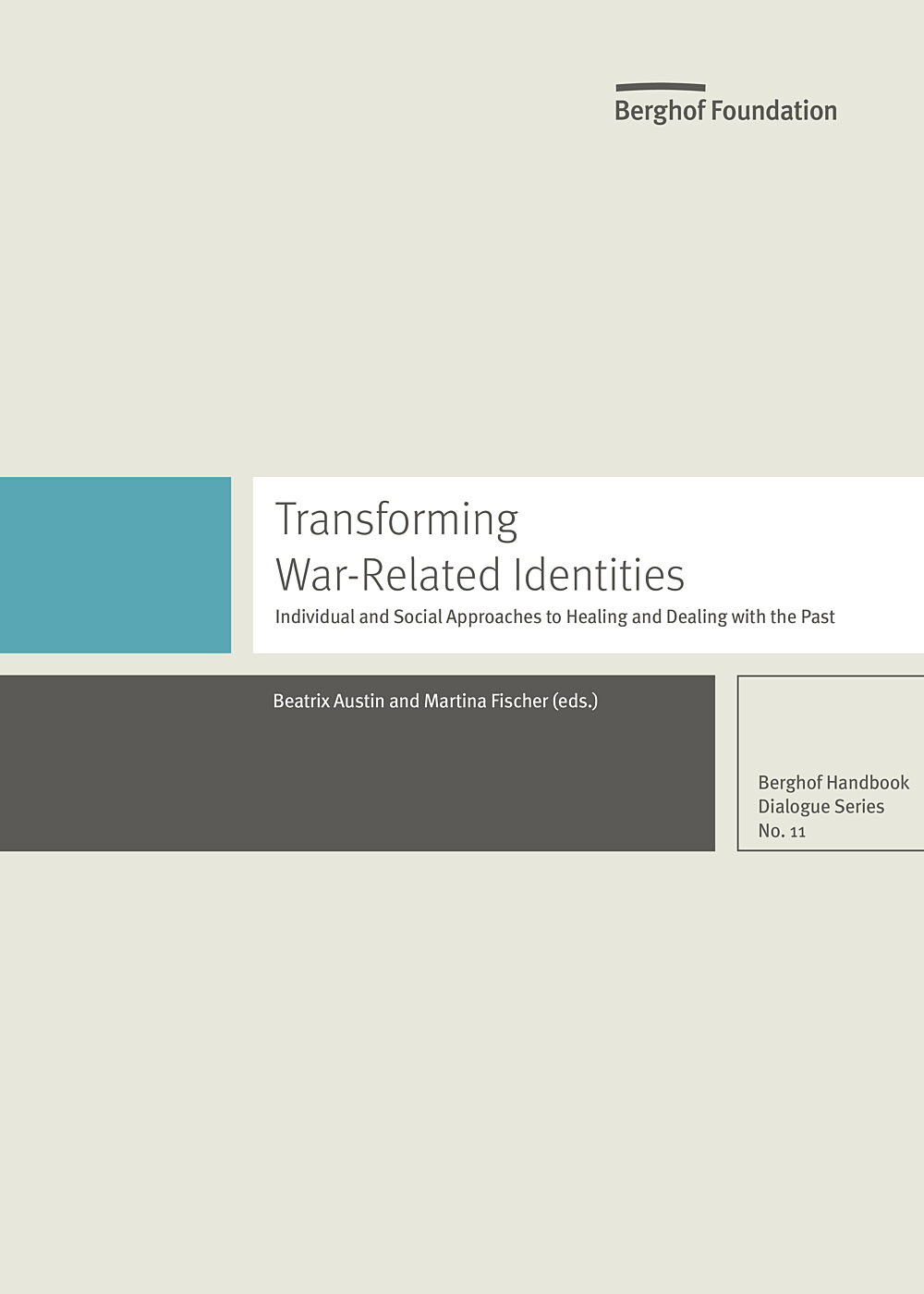
Transforming War-Related Identities. Individual and Social Approaches to Healing and Dealing with the PastHandbook Dialogue Series No. 11 - complete
In all the post-war regions in which we engaged – together with a variety of partners – over the past two decades, we faced the crucial question of how to deal with traumatic experiences, painful memories and war-related identities. In many societies emerging from war, people are constantly dealing with the past in one way or another, although with diverging and often even opposing purposes. Transitional justice strategies have become an important element of post-war reconstruction programmes established by international organisations and donors. Recommendations for these programmes tend to include war crimes prosecution by international, hybrid or domestic courts, truth commissions, lustration of state administrations, symbolic reparations or material compensation, as well as psychosocial support for those affected by the wars, incentives for societal dialogue, or initiatives that provide space for “working through” or alternative views on history. However, there is still a lack of knowledge of how the different transitional justice approaches impact on societies affected by violence, on groups as well as individuals.
- Year 2016
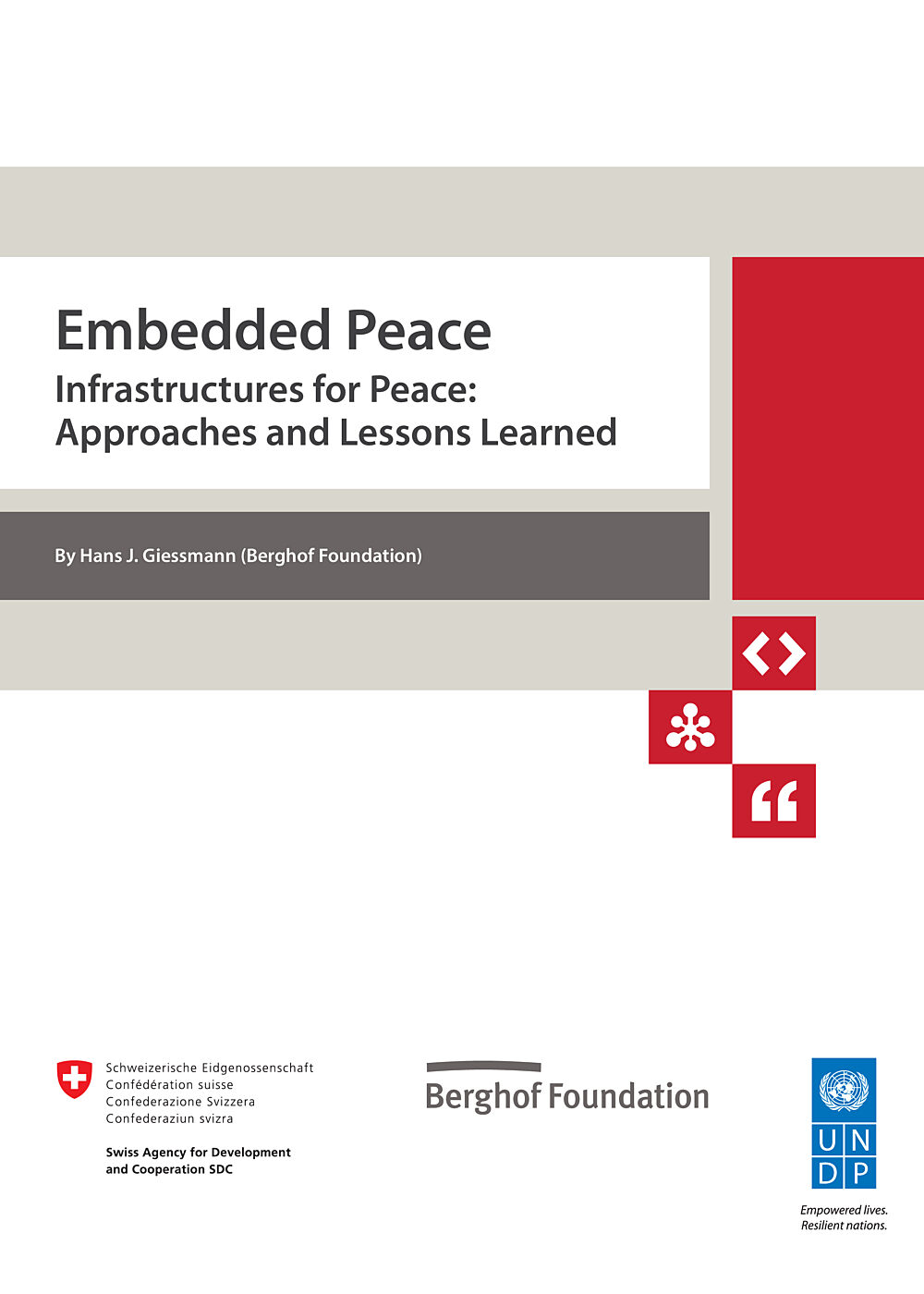
Infrastructures for PeaceApproaches and Lessons Learned
This paper provides key insights on the concept, design and tailoring of I4P processes to national contexts. It also looks at the experiences of five different countries where efforts were made to nurture such peace structures - South Africa, Ghana, Tunisia, Nepal and Thailand (Deep South), and provides comparative insight from the design and implementation of particular components of I4P, in particular national dialogues, local peace committees and insider mediation. Finally, it elaborates on recommendations to improve the role UNDP can play in promoting and supporting I4P- both in conceptual terms and in practice. It was published in cooperation with the United Nations Development Programme (UNDP) and the Swiss Agency for Development Cooperation (SDC).
- Year 2016
- Author(s) Hans-Joachim Giessmann
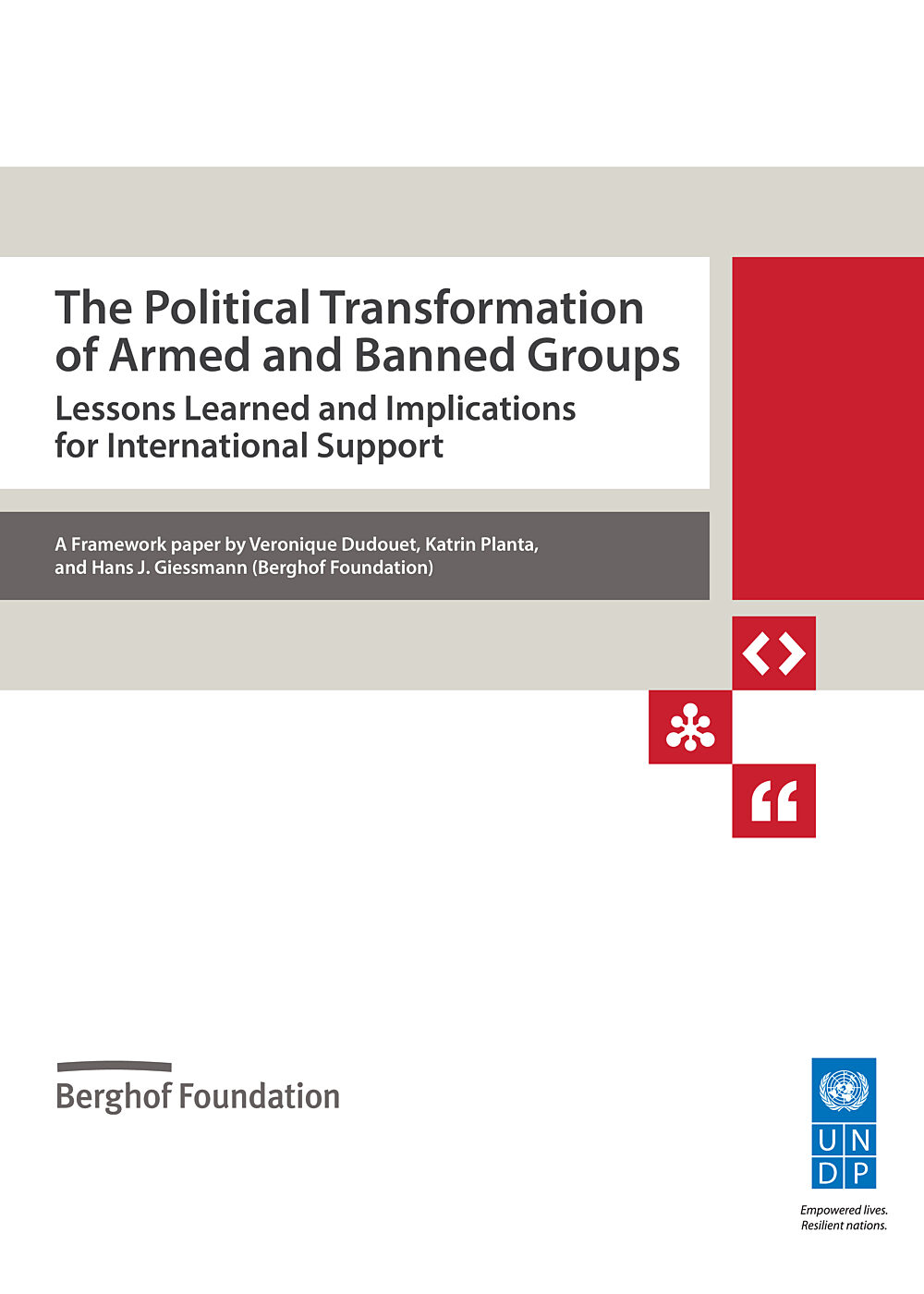
The Political Transformation of Armed and Banned GroupsLessons Learned and Implications for International Support
The paper provides key insight on the factors that might explain why some armed groups undergo effective transformations from engaging in war and violence to participating in peaceful political processes, while others fail to implement or consolidate their political project. Highlighting the critical role played by the UN system in these contexts, in particular peacekeeping and political missions, it argues that development actors operating globally, such as UNDP, are also well placed to bring a broad range of expertise and instruments when supporting these transformative processes. However, it underscores that enhancing inter-agency collaboration between UNDP and actors directly involved in political processes will be essential in supporting this work, citing the Joint UNDP-DPA Programme on Building National Capacities for Conflict Prevention as a particularly effective mechanism in this regard.
- Year 2016
- Author(s) Véronique Dudouet, Katrin Planta, Hans-Joachim Giessmann
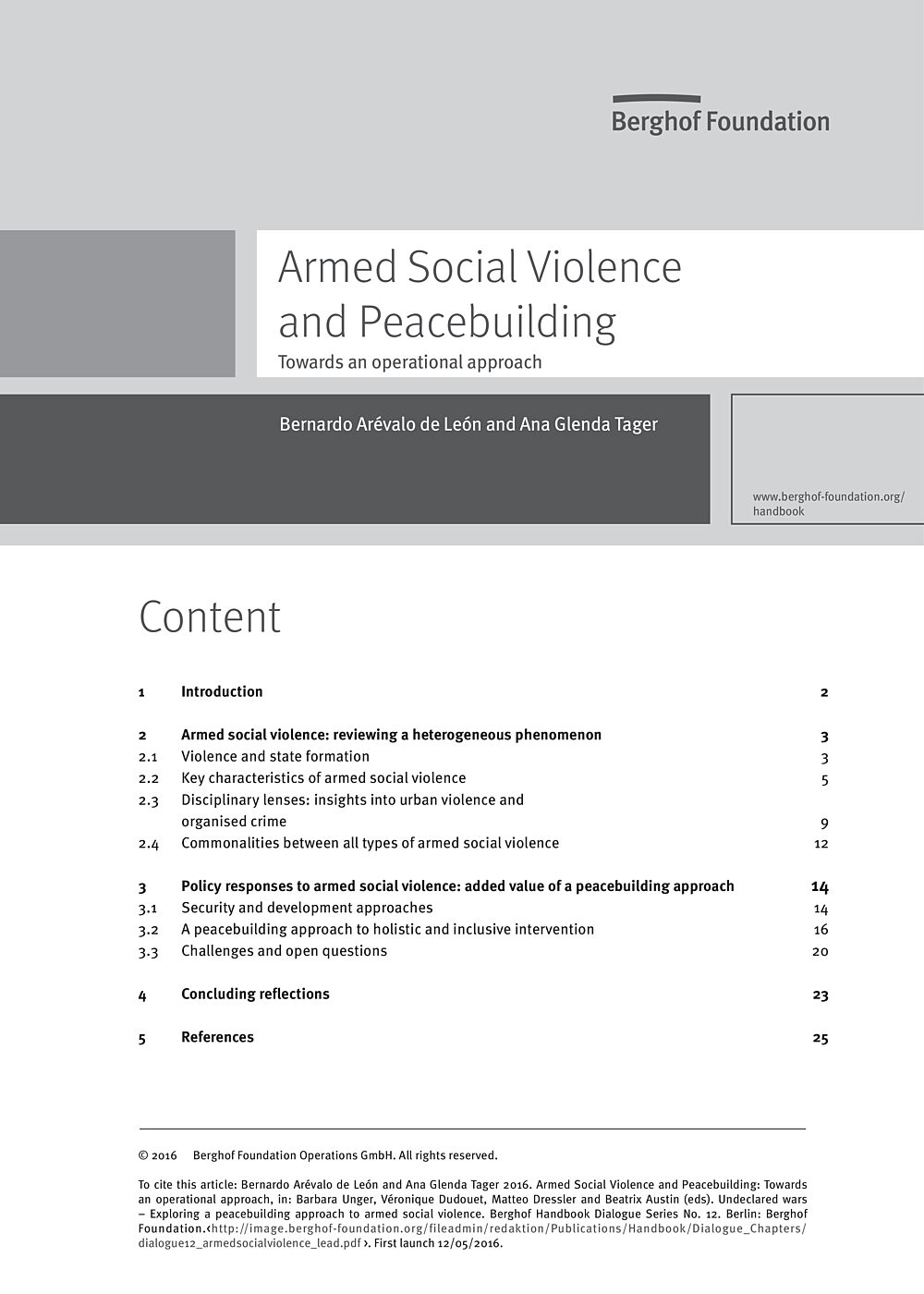
Armed Social Violence and Peacebuilding: Towards an operational approachBerghof Handbook Dialogue Series No. 12 - lead article
In some countries, more civilians are being killed by armed gangs and criminal organisations than in traditional combat. Still, these pockets of armed social violence – “Undeclared wars” marked, among other things, by criminal, gang and/or urban violence – have long received much less attention than politically motivated forms of armed conflicts. As their effects – social-political destabilisation, in some cases coinciding with high numbers of victims – are becoming more pressing, national and international actors have begun addressing the phenomenon.
- Year 2016
- Author(s) Bernardo Arévalo de León, Ana Glenda Tager
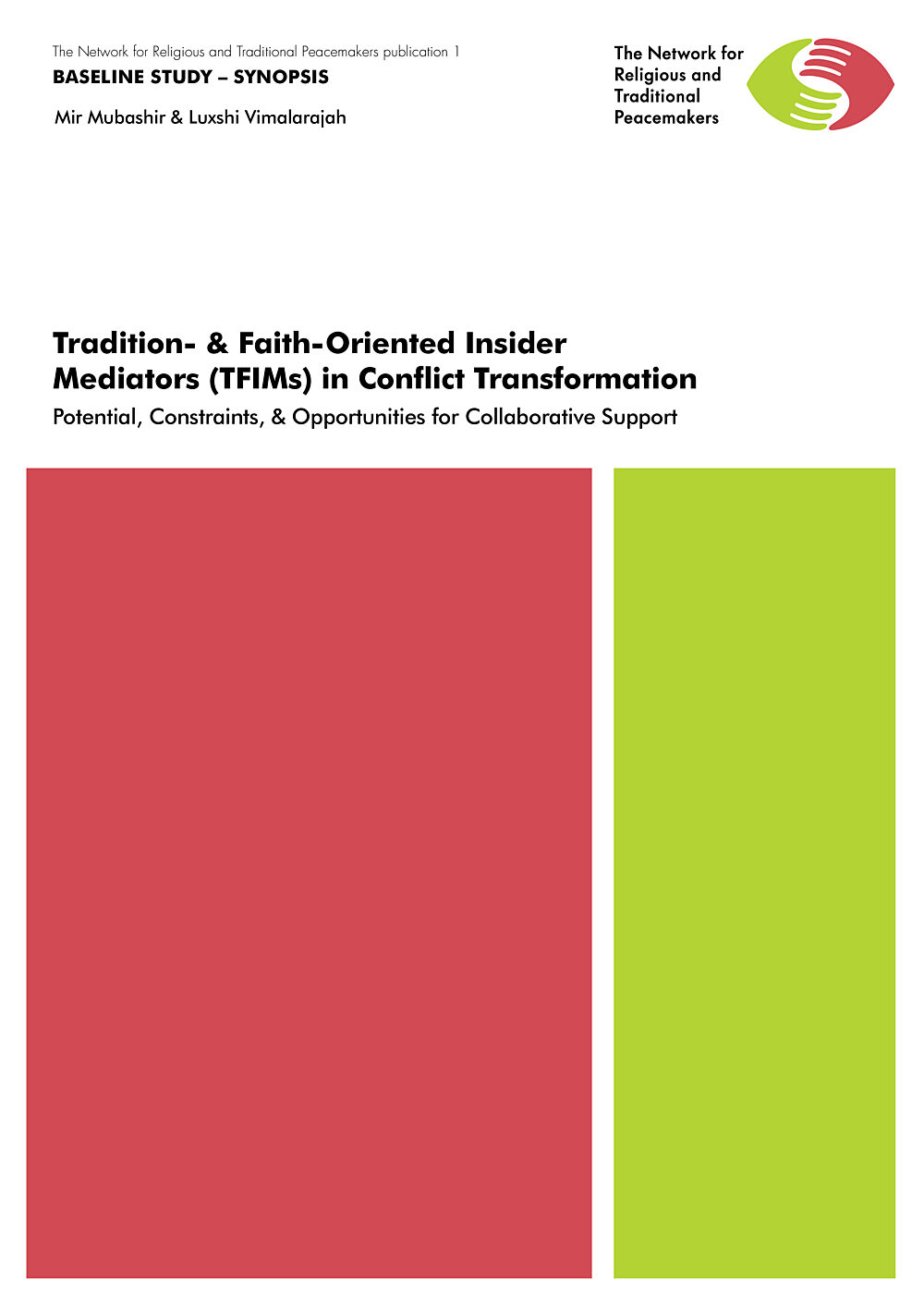
Tradition- & Faith-Oriented Insider Mediators (TFIMs) in Conflict TransformationPotential, Constraints, & Opportunities for Collaborative Support (Baseline Study: Synopsis)
On the basis of empirical knowledge acquired through case studies in Myanmar (Burma), Southern Thailand, Lebanon, Colombia, Kenya and Mali, this study conceptualises and contextualises a specific set of religious and traditional peacemakers as tradition- & faith-oriented insider mediators (TFIMs). In considering their peace mediation roles, potential and the constraints under which they work, it also reflects on the opportunities for collaborative support linking various actors within conflict contexts.
- Year 2016
- Author(s) Mir Mubashir, Luxshi Vimalarajah
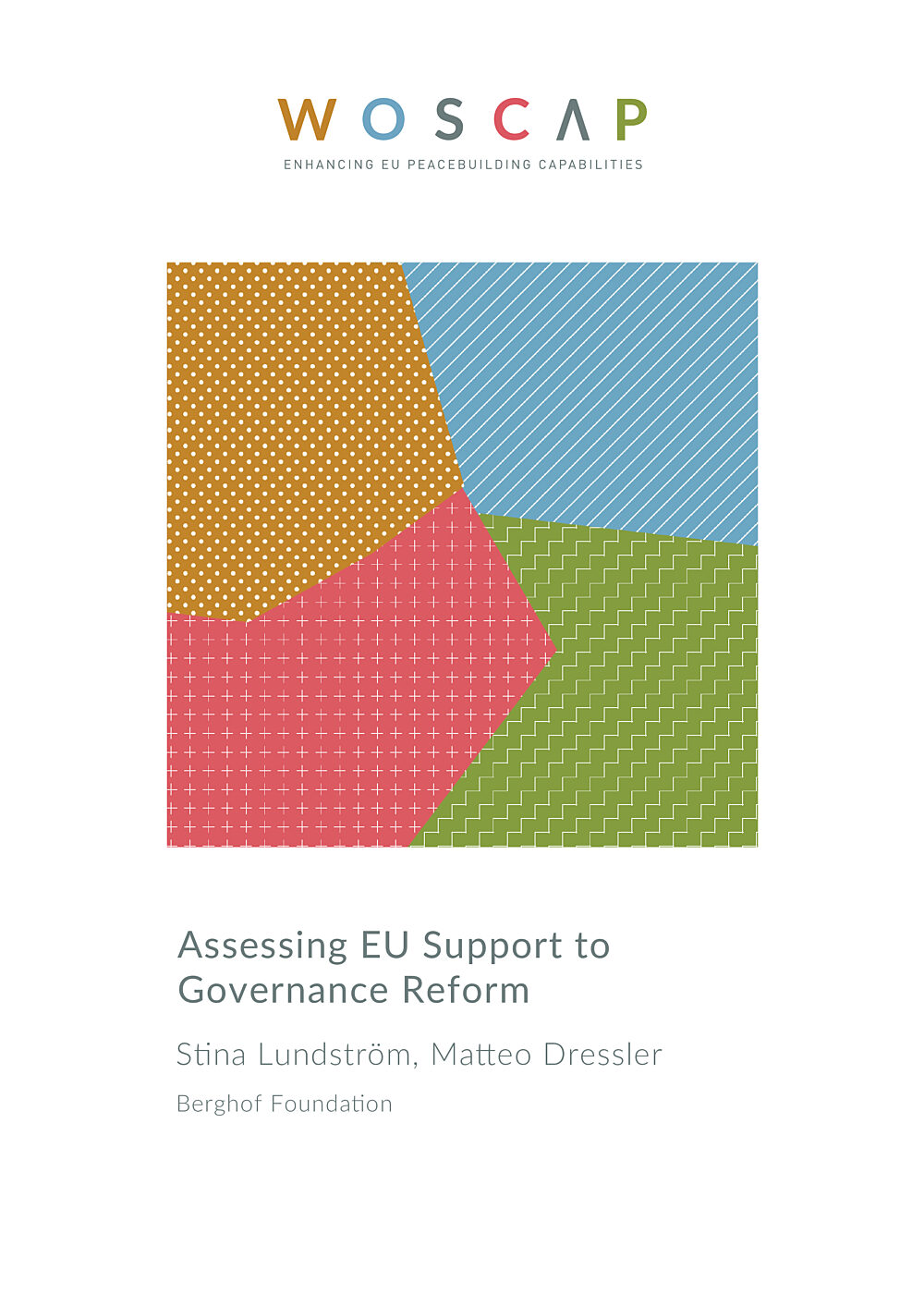
Assessing EU Support to Governance Reform(Scoping Study)
While the promotion of good governance has long been at the heart of EU’s assistance to peacebuilding, stability, and security, it has gained yet more prominence among the set of EU values upheld in the post-Lisbon EU (common) foreign policy agenda, closely associated – and sometimes used interchangeably – with related values such as human rights, democratisation, and the rule of law (Hout 2013).
- Year 2016
- Author(s) Stina Lundström, Matteo Dressler
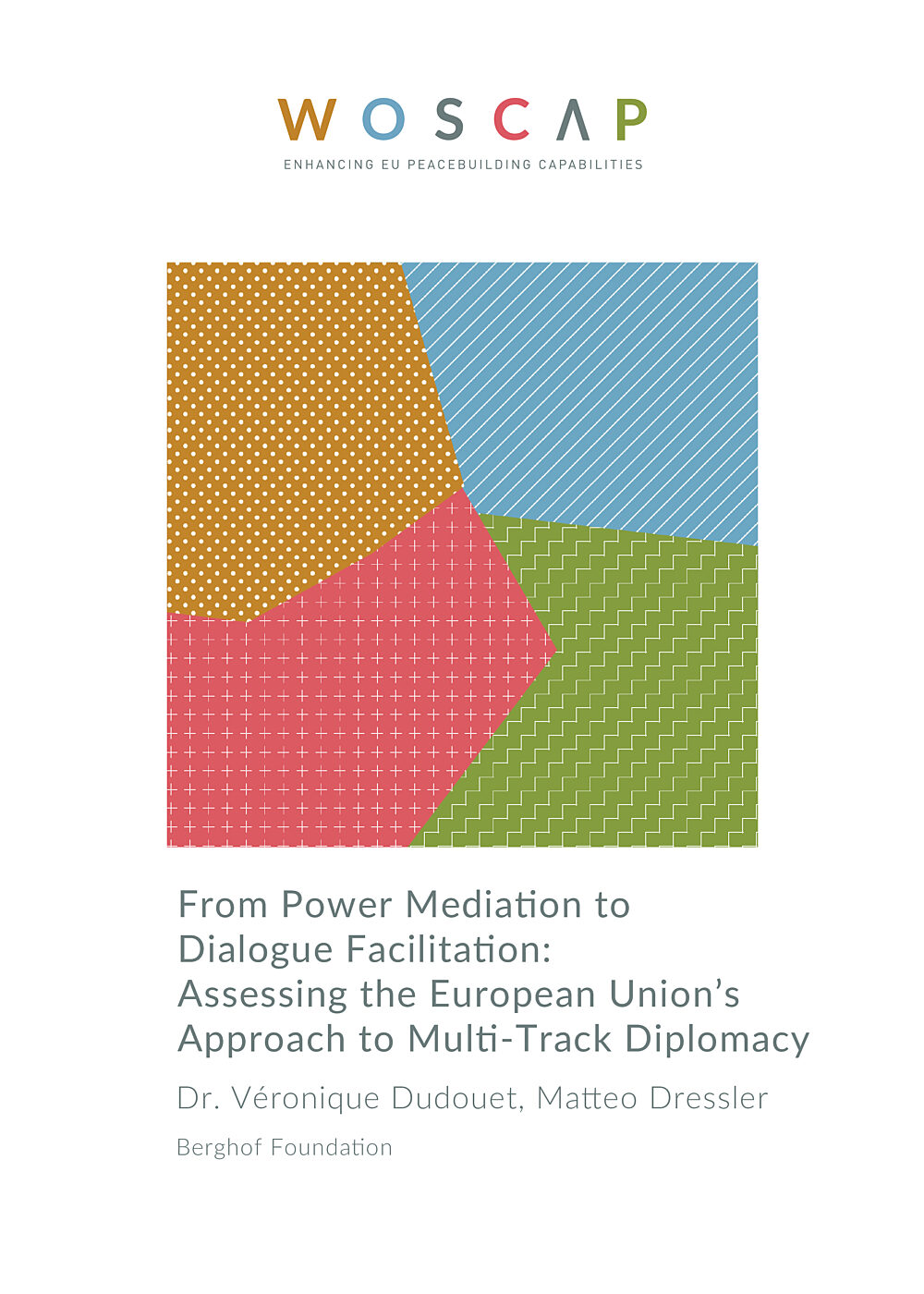
From Power Mediation to Dialogue FacilitationAssessing the European Union’s Approach to Multi-Track Diplomacy (Scoping Study)
This scoping report defines multi-track diplomacy (MTD) as a specific approach to EU foreign policy, alongside other intervention strategies such as security sector intervention, political reform support or socio-economic assistance. It places a primary emphasis on diplomatic initiatives aimed at supporting conflict prevention and peacebuilding, especially during the various (formal and informal) stages of peace processes.
- Year 2016
- Author(s) Véronique Dudouet, Matteo Dressler
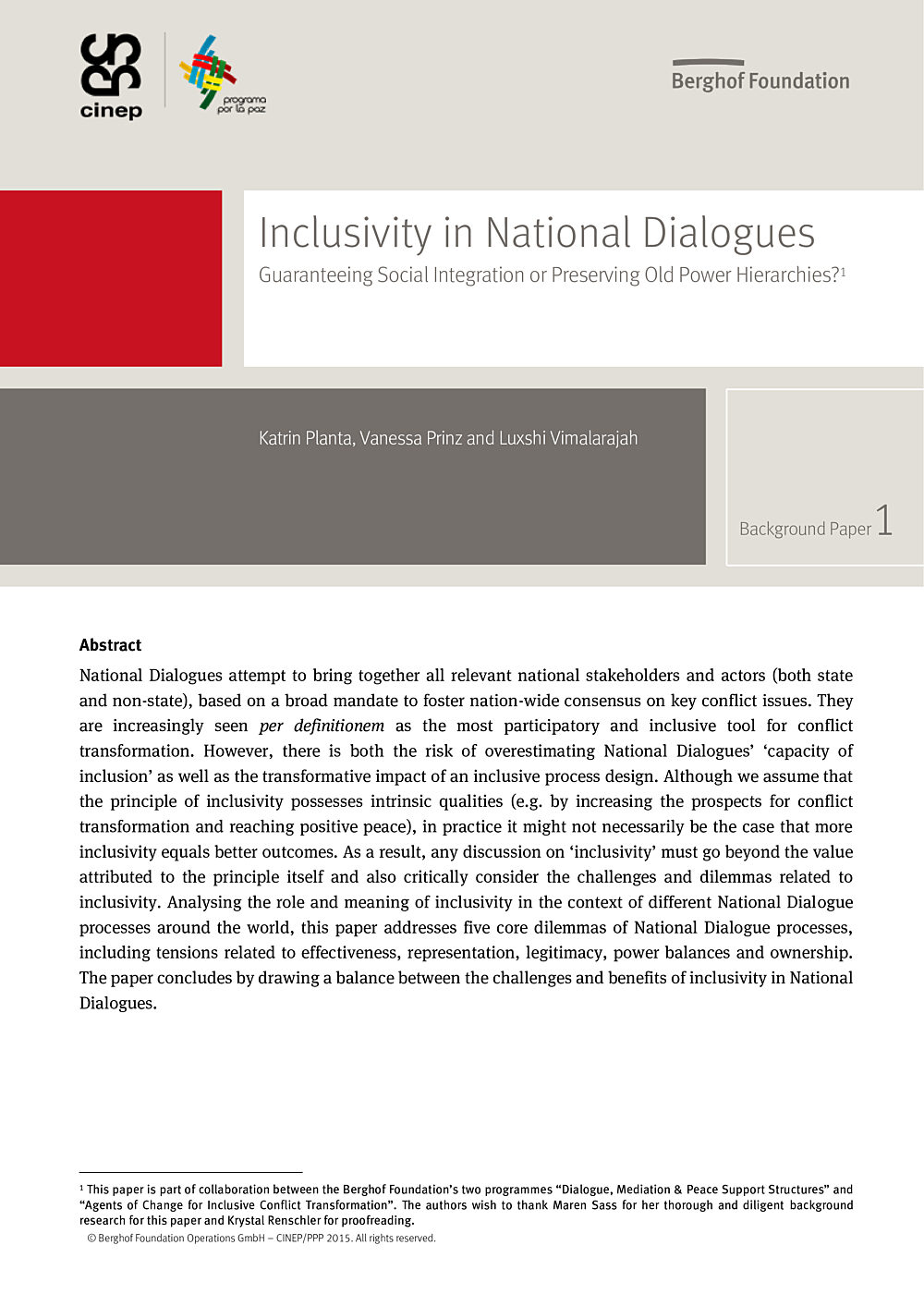
Inclusivity in National Dialogues: Guaranteeing Social Integration or Preserving Old Power Hierarchies?IPS Paper No.1
Analysing the role and meaning of inclusivity in the context of different National Dialogue processes around the world, this paper addresses five core dilemmas of National Dialogue processes, including tensions related to effectiveness, representation, legitimacy, power balances and ownership.
The paper concludes by drawing a balance between the challenges and benefits of inclusivity in National Dialogues.
- Year 2015
- Author(s) Katrin Planta, Vanessa Prinz, Luxshi Vimalarajah
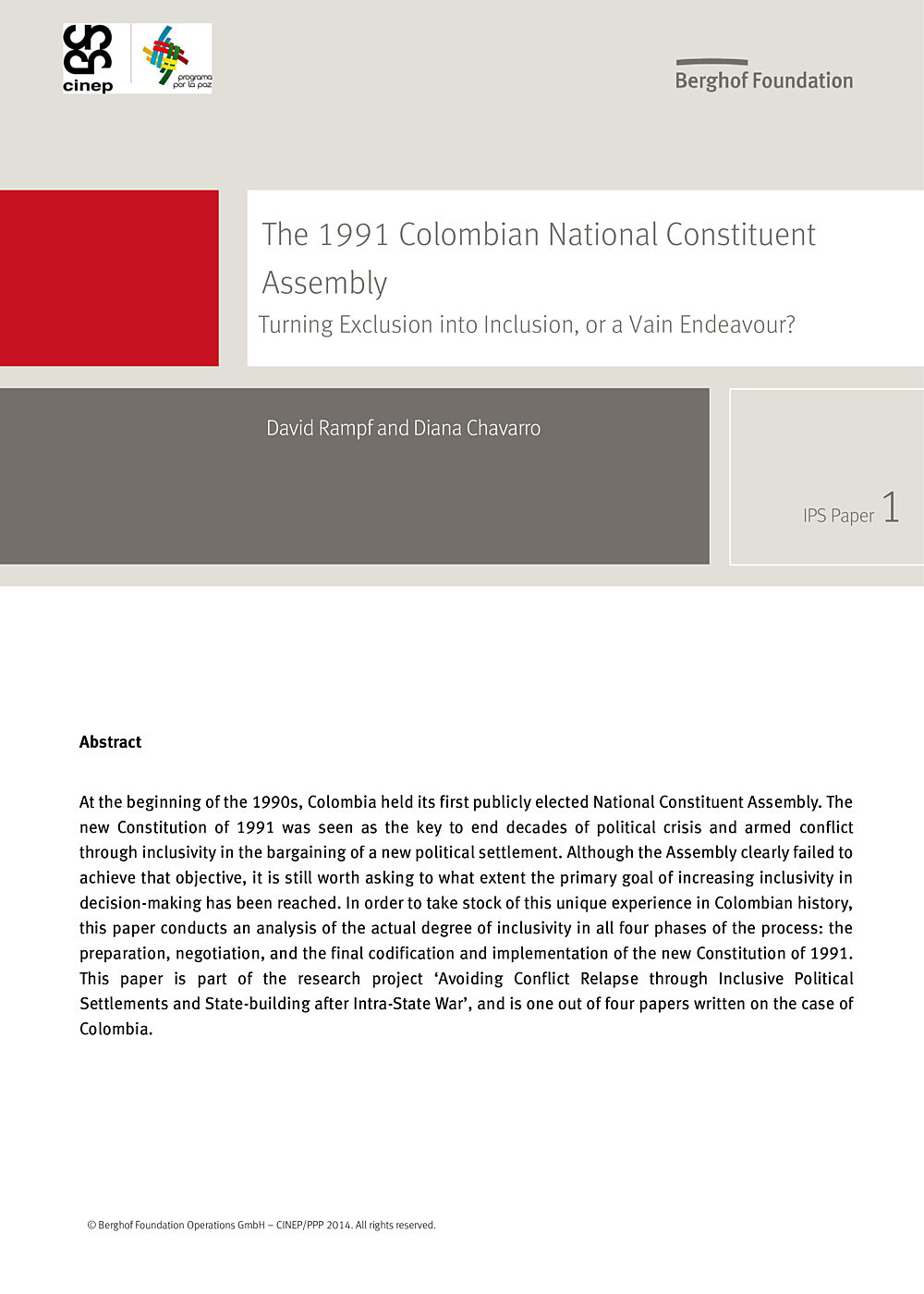
The 1991 Colombian National Constituent Assembly: Turning Exclusion into Inclusion, or a Vain Endeavour?IPS Paper No. 1
In order to take stock of this unique experience in Colombian history, this paper conducts an analysis of the actual degree of inclusivity in all four phases of the process: the preparation, negotiation, and the final modification and implementation of the new Constitution of 1991. This paper is part of the research project ‘Avoiding Conflict Relapse through Inclusive Political Settlements and State-building after Intra-State War’, and is one out of four papers written on the case of Colombia.
- Year 2015
- Author(s) David Rampf, Diana Chavarro
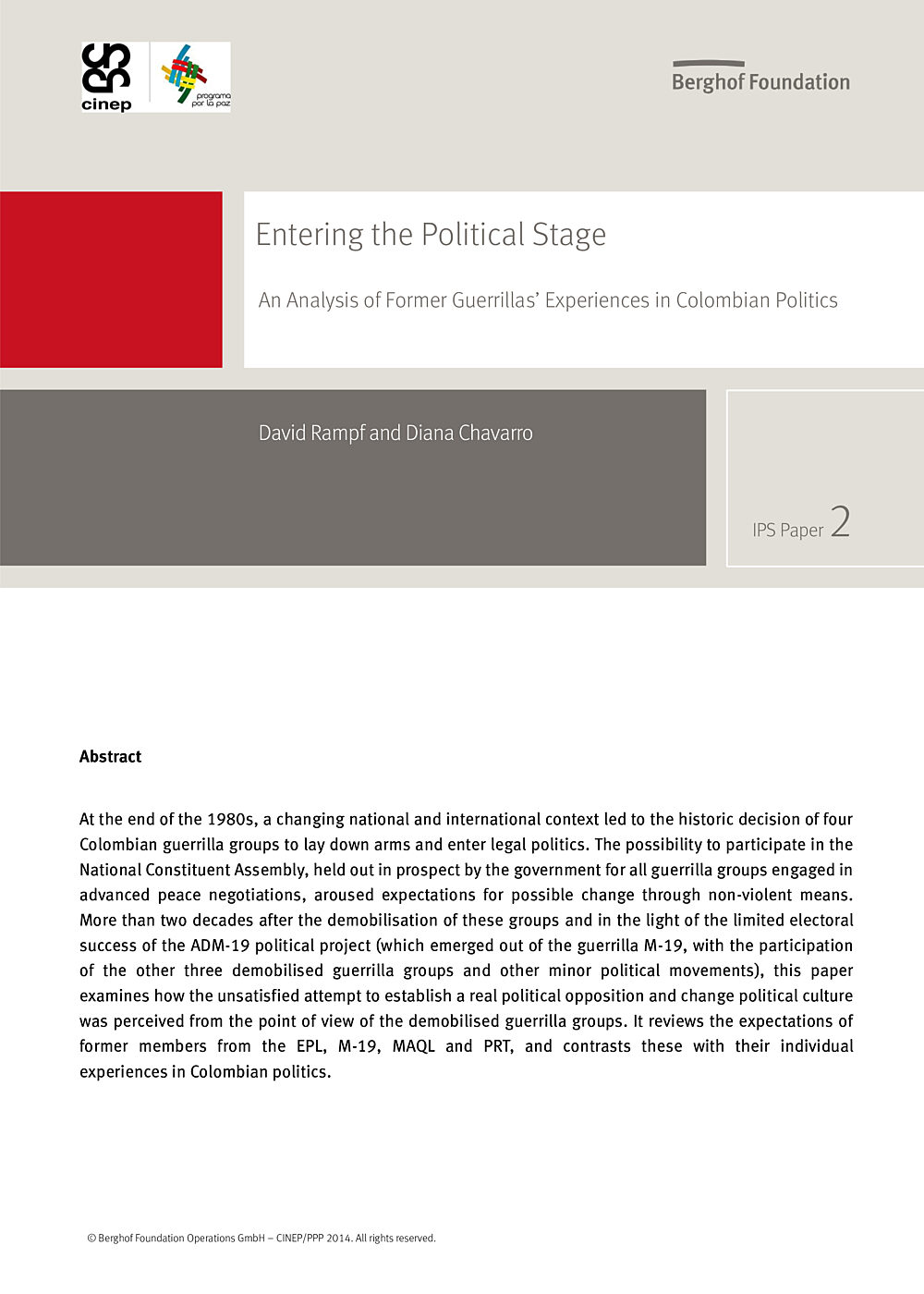
Entering the Political Stage: An Analysis of Former Guerrillas’ Experiences in Colombian PoliticsIPS Paper No. 2
More than two decades after the demobilisation of these groups and in the light of the limited electoral success of the ADM-19 political project (which emerged out of the guerrilla M-19, with the participation of the other three demobilised guerrilla groups and other minor political movements), this paper examines how the unsatisfied attempt to establish a real political opposition and change political culture was perceived from the point of view of the demobilised guerrilla groups. It reviews the expectations of former members from the EPL, M-19, MAQL and PRT, and contrasts these with their individual experiences in Colombian politics.
- Year 2014
- Author(s) David Rampf, Diana Chavarro